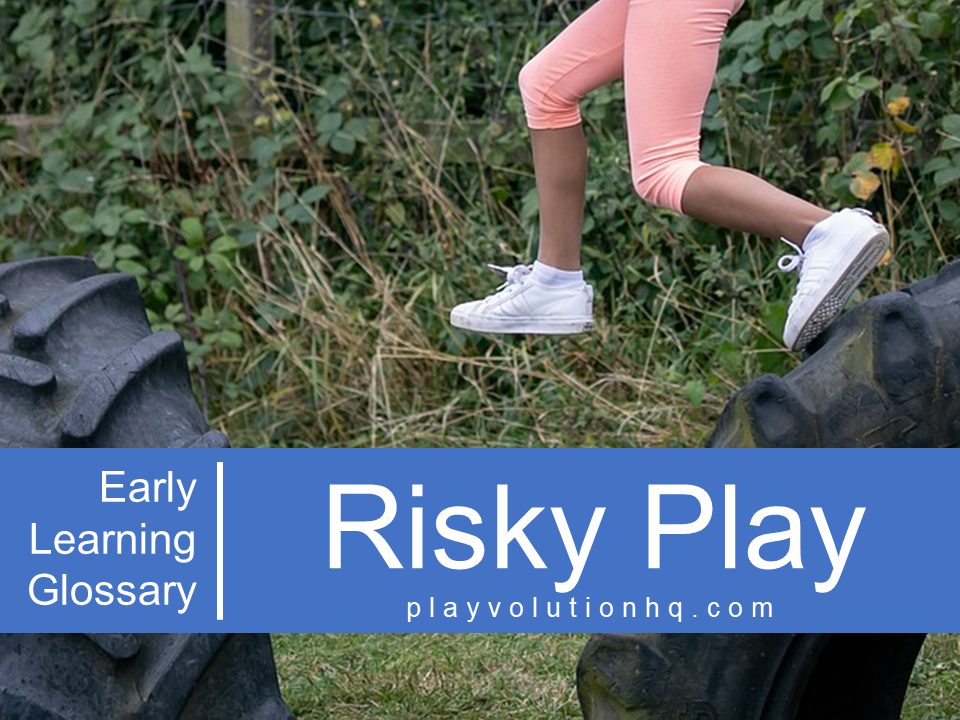
Risky play refers to activities that allow children to explore, engage the world, experience uncertainty, and stretch their boundaries. Far from being something to avoid, risky play is an essential component of a child’s holistic development.
When supported developmentally appropriately within well-managed and thoughtfully arranged environments, risky play is not particularly risky. Climbing trees, rough-and-tumble play, and other physically active or limit-pushing activities contribute significantly to a child’s physical, cognitive, and emotional development.
In the long run, risky play helps keep kids safe because it builds their confidence, improves their decision-making, teaches them to assess risk, and helps them understand their limits.
Risky Play And Safety
It’s essential to understand some terminology related to this topic. A danger is something that could cause harm. A hazard is an unseen danger. A risk is something children can observe, evaluate, and choose—even though it may cause harm. Supporting risky play is really about supporting decision-making.
To keep risky play safe, adults should focus on hazard mitigation by actively removing, limiting, or helping kids see potential dangers.
Four Types Of Risk Taking
Most adult minds gravitate towards physical risk-taking when they contemplate risky play, but there are three additional types of risk kids take during such play.:
- Physical Risk—Risk With The body.
- Social Risk—Risk With People.
- Emotional Risk—Risk With Feelings.
- Intellectual Risk—Risk With Ideas.
You’ll find a handout with more information on each of the four types of risk here.
The Benefits Of Risky Play
Here are 7 things to consider when developing policies and procedures related to this topic:
- Physical Development—Engaging in risky play challenges children’s physical abilities, improving small and large muscle skills and control as well as promoting coordination, balance, and sensory integration.
- Cognitive Growth—Children learn best through hands-on experiences. Risky play allows them to explore their surroundings, test their limits, and tangibly make sense of the world. Such activity enhances their cognitive abilities.
- Personal Resilience—Independently negotiating challenges fosters a sense of self-efficacy and resilience. Overcoming challenges and facing uncertainties during play builds confidence, self-regulation, and a positive approach to overcoming obstacles.
- Social Skills—Many risky play activities involve cooperation and collaboration. Negotiating rules, taking turns, and effectively communicating are essential social skills that develop naturally in the context of adventurous play.
- Intrinsic Motivation—Risky play is inherently motivating for children. The thrill and excitement associated with these activities drive intrinsic motivation, fostering a genuine love for learning.
- Self-Confidence—Assessing situations and choosing to take risks (or not) also helps children develop confidence in both their ability to make decisions and in their physical, social, intellectual, and emotional competence.
- Curiosity And Creativity—By engaging in risky play, children are encouraged to think creatively, solve problems, and innovate. The freedom to explore and experiment sparks curiosity and creativity.
Risky Play Resources
Here’s some related content you may find helpful:
Risky Play Wrap-Up
Supporting risky play in all its forms—physical, social, emotional, and intellectual—enables children to develop the skills and qualities needed for success in a dynamic world. Risk-taking is a skill, and risky play is how children build it.
Contribute content to Playvolution HQ
Brought to you by Explorations Early Learning
Thoughts On This Entry?
I’d love to hear your thoughts on improving this entry and suggestions for additional glossary additions in the comments below. You can also contact me with comments or concerns.
Browse Trainings
Post Author
Jeff Johnson is an early learning trainer, podcaster, and author who founded Explorations Early Learning, Playvolution HQ, and Play Haven.


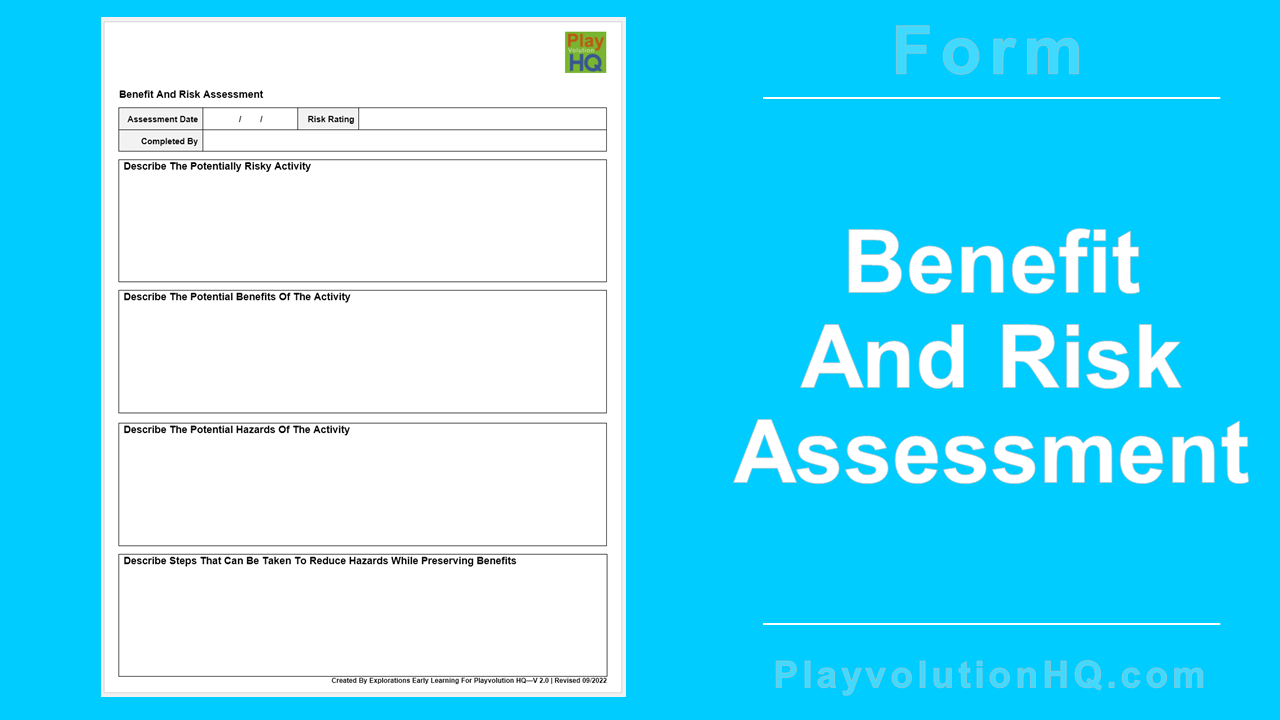
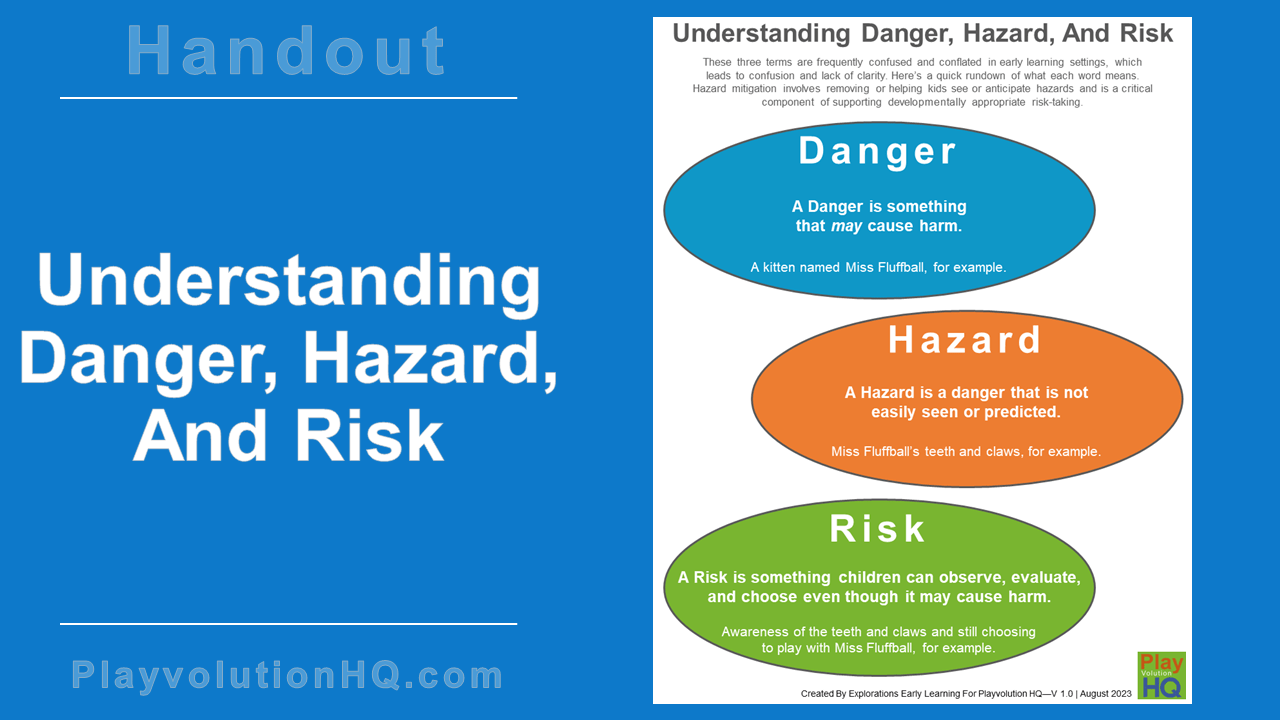
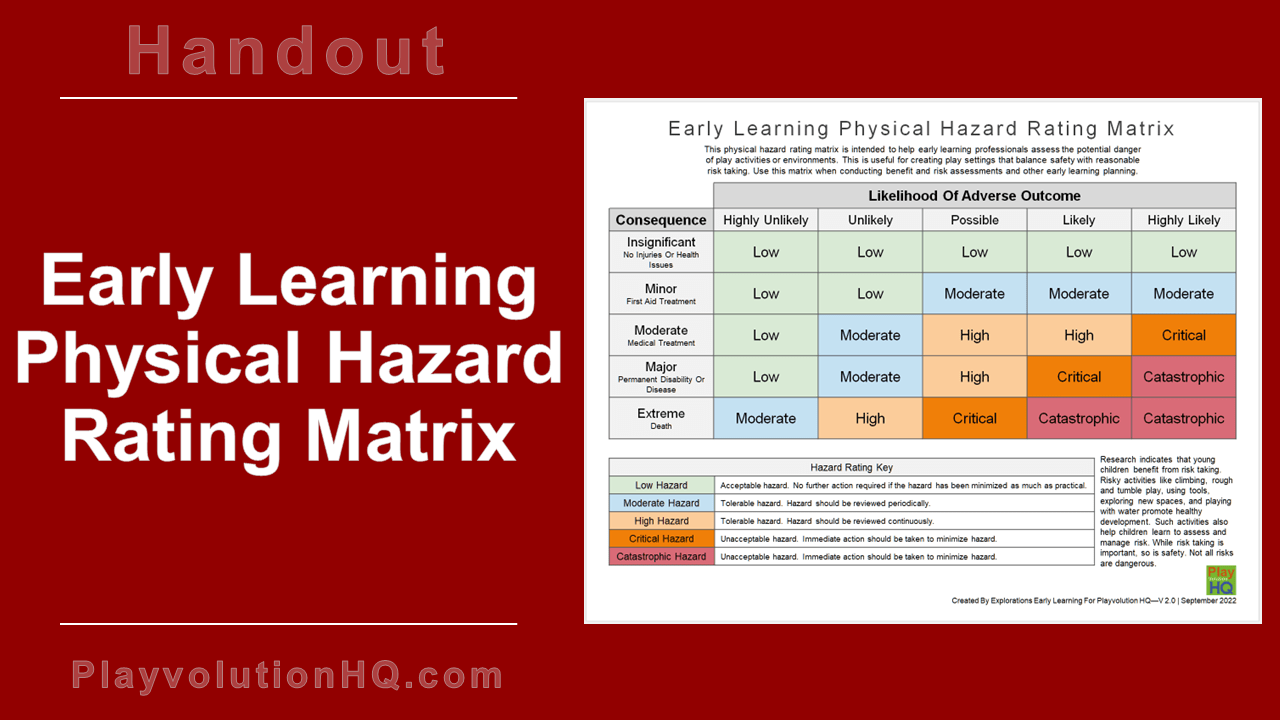
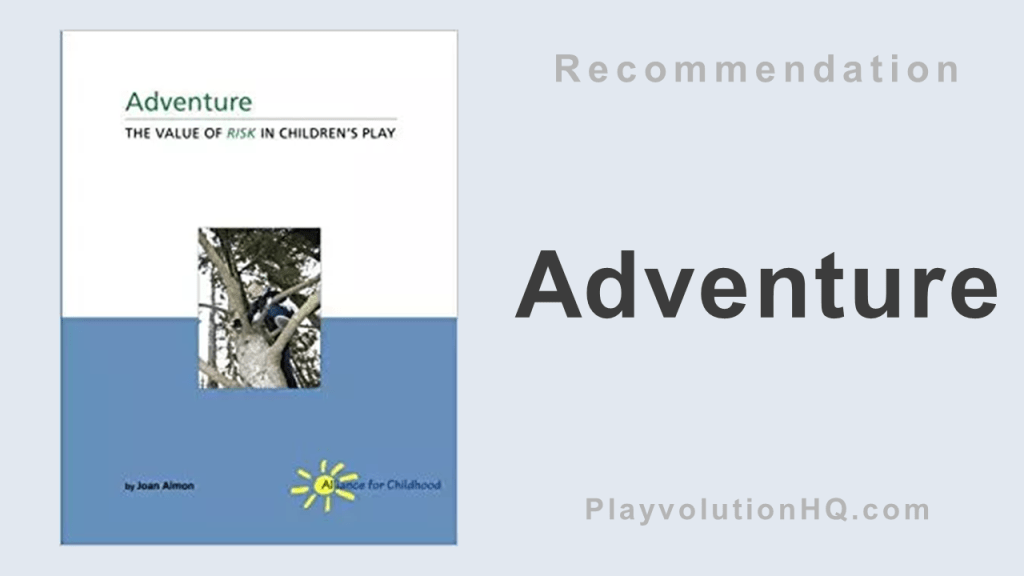
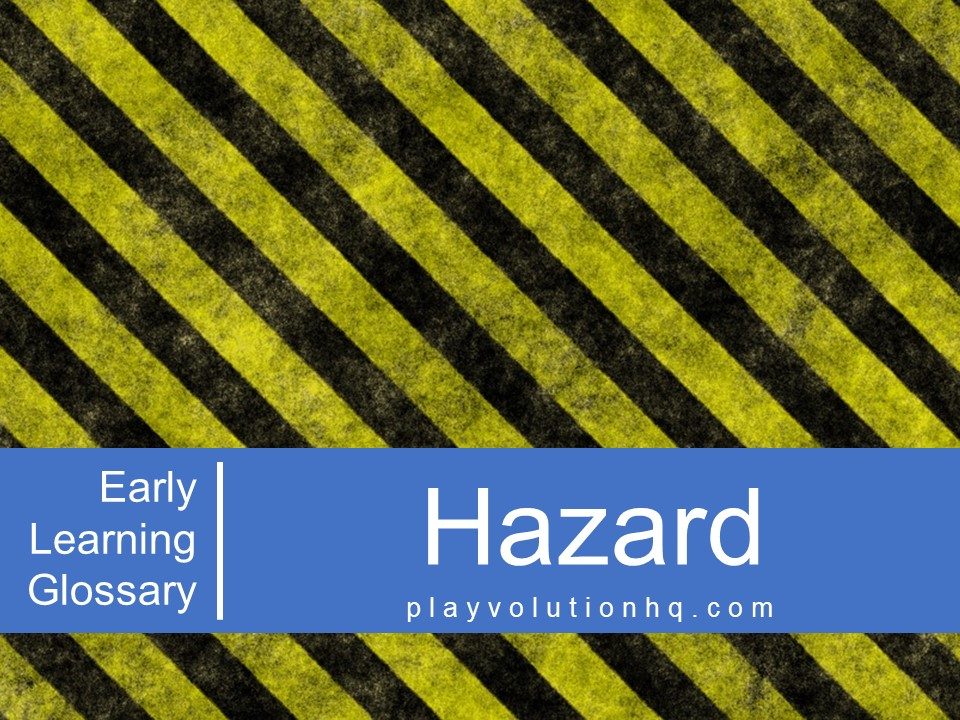
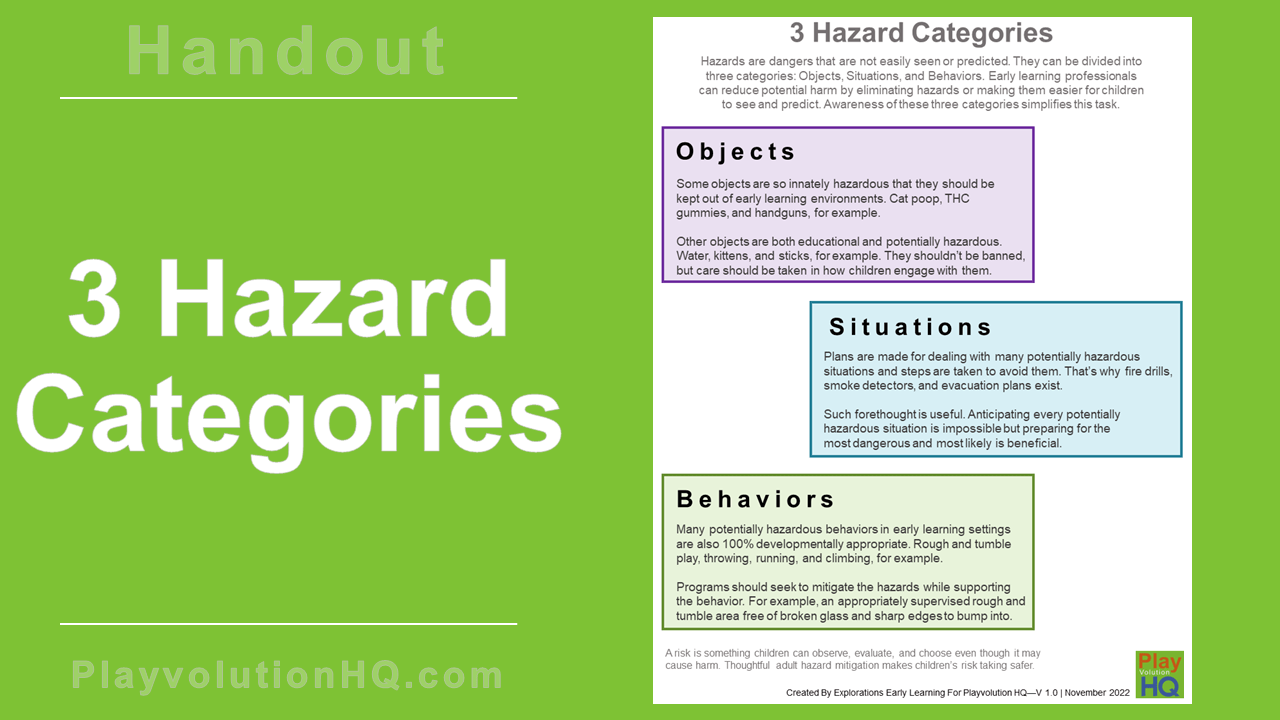
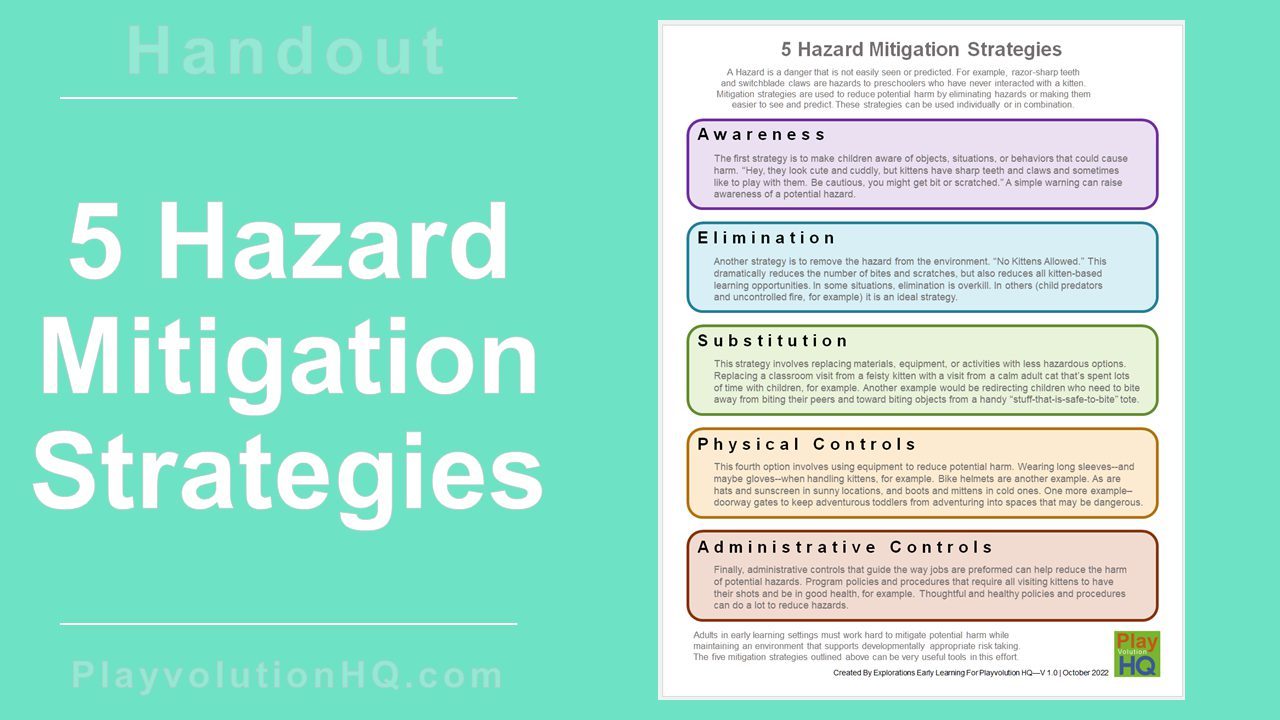


Leave a Reply